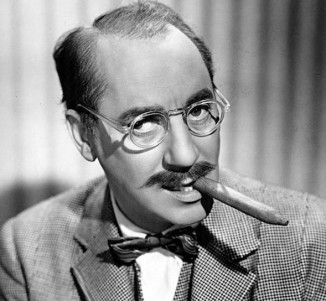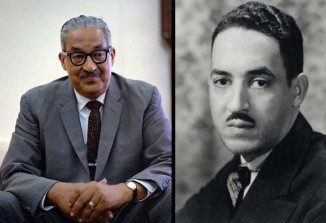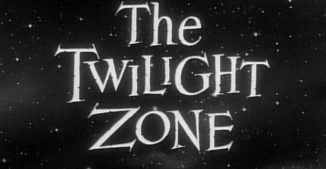67 years ago today, a new island, or Ilha Novo, appeared on the edge of the westernmost island (Faial) in the Azores chain after the eruption of Capelinhos, or “little cape,” one of many submerged cone volcanoes in the area. The eruption caused no deaths, however it did wreck many houses and reduce the population of the island by half—most of whom evacuated and immigrated to the US under the Azorean Refugee Act, passed under John F. Kennedy. It did extend Faial’s land area by 3 square kilometers though, and blanketed the surrounding slopes with volcanic ash that spawned lush forests and a tourism boom. READ more… (1957)

Apart from the dramatic view of the sea from the newly-formed sea cliff resulting from the erupted mass, a visit to Capelinhos includes an underground interpretation center where visitors can learn about the volcanic history of the area and the Azores at large through the pictures and footage of the dramatic eruptions that occurred between late-September and December of 1957.
Today, the lighthouse at Capelinhos is in the middle of a barren field, since the coastline was extended by the eruption and formation of Ilha Novo.
MORE Good News on this Day:
- Mohandas (Mahatma) Gandhi was born in Porbandar, India; an attorney turned political leader, he went on to advocate non-violence and become the Father of a Nation (1869)
- Guinea declared itself independent from France (1958)
- The president of South Korea (Roh Moo-hyun) walked across the Military Demarcation Line into North Korea on his way to the second Inter-Korean Summit hosted by North Korean leader Kim Jong Il (2007)
Happy Birthday to Sting who turns 73 today. He wrote and recorded his new album, The Bridge, during the pandemic. Dropping in November, the first single is out now with a strong hook of pop: If It’s Love. He said the LP was influenced by “a year of global pandemic, personal loss, separation, disruption, lockdown, and extraordinary social and political turmoil.”

Born as Gordon Matthew Thomas Sumner to a blue-collar family, the Englishman was the lead singer and bassist for the new wave 70s and 80s band, The Police, then launched a solo career. Altogether, he’s won 17 Grammys and won Song of the Year for Every Breath You Take. Over the decades, he’s sold over 100 million records as one of the world’s best-selling music artists.
He’s also been nominated for an Oscar four times for Best Original Song, in films like The Thomas Crown Affair, Leaving Las Vegas, The Three Musketeers, and Lethal Weapon 3. As an actor, he’s appeared in many TV shows and films, including Steve Martins’s new Hulu hit, Only Murders in the Building.
Sting’s new web series, “On the Bridge” features an intimate glimpse into the musician’s everyday life as he prepares to launch his new album, unleashing a new episode (2-3 minutes each) weekly on YouTube. WATCH the debut and hear the haunting new song…(1951)
Also on this day in 1890, Julius “Groucho” Marx was born in New York City into a family with show biz ties. He became a master of quick wit, and his rapid-fire, impromptu delivery of innuendo-laden comedic patter.
With his siblings, the Marx Brothers, he appeared in 13 feature films. His distinctive appearance and quirks—his exaggerated stooped posture, ever-present cigar, and thick eyebrows and mustache—resulted in the creation of one of the world’s most recognizable looks. You can still buy “Groucho Glasses” a fun one-piece mask consisting of thick glasses, large plastic nose, bushy eyebrows, and mustache.
And on this day in 1967, Thurgood Marshall was sworn in as the first African-American justice to the United States Supreme Court. 
His college entrance application was rejected by the University of Maryland Law School, on the basis of race, so he enrolled at Howard University instead. “The first thing he did, upon graduation, was use his law degree to sue the University of Maryland for racial discrimination, and he almost couldn’t believe it when he won.” Thanks to his efforts, in 1935 the first black student was admitted to a state law school.
The Writer’s Almanac reports, “Marshall became the legal director of the NAACP, and of the 32 cases he argued for that organization, he won 29.” His biggest case was before the Supreme Court in 1954, the landmark Brown vs. Board of Education that decided the issue of school segregation in the U.S. Marshall once said: “None of us got where we are solely by pulling ourselves up by our bootstraps. We got here because somebody—a parent, a teacher, an Ivy League crony or a few nuns —bent down and helped us pick up our boots.”
On this day 74 years ago, Peanuts, the American comic strip by Charles Schulz, was first published. Schulz drew the comic every day for 50 years—producing an astonishing 17,897 episodes.

With a readership of around 355 million in 75 countries, it was translated into 21 languages, earning the artist more than $1 billion with merchandise sales.
The astutely philosophical strip focused entirely on a social circle of young children revolving around the main character, Charlie Brown. Meek and lacking self-confidence, he is unable to fly a kite, win a baseball game, or kick a football—because it was always held by his bossy friend Lucy, who pulled it away at the last instant.
The popular Peanuts TV specials, A Charlie Brown Christmas and It’s the Great Pumpkin, Charlie Brown won or were nominated for Emmys—and are still broadcast every year to this day. Schultz ended the strip in 2000 for health reasons and died one month later, with his dying wish being that no one would continue the series. WATCH a Peanuts history video… (1950)

65 years ago today, Rod Serling’s Twilight Zone premiered on American TV. On CBS for five years, the anthology series featured a wide variety of talented actors portraying paranormal or disturbing events, often with a surprise ending and a moral. The phrase “twilight zone,” became a common phrase to describe surreal experiences. The executive producer and writer of 92 of the 156 episodes, Serling provided the iconic vocal narration at the beginning and endings. In 2013, the Writers Guild of America ranked the series, which won 2 Emmys, as the third best-written TV series of all time.
Check out the amazing cast list: The series featured early performances from actors who later became famous, like Carol Burnett, Robert Duvall, Peter Falk, Dennis Hopper, Ron Howard, Jack Klugman, Martin Landau, Charles Bronson, Cloris Leachman, Elizabeth Montgomery, Leonard Nimoy, Robert Redford, Burt Reynolds, William Shatner, George Takei, and Jonathan Winters. WATCH the Top 10 Shocking Twist Endings of The Twilight Zone… (1959)
WATCH the best of Bobby below…
SHARE the Milestones, Memories, and Music…





















[…] post Good News in History, October 2 appeared first on The Good News […]